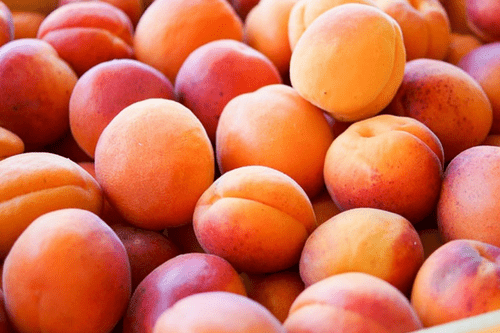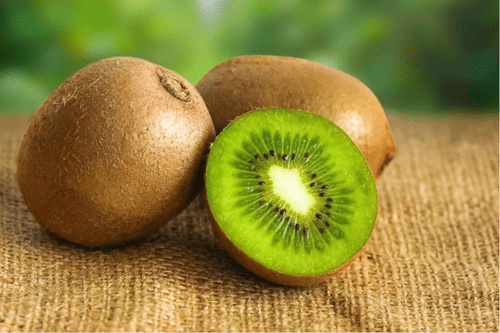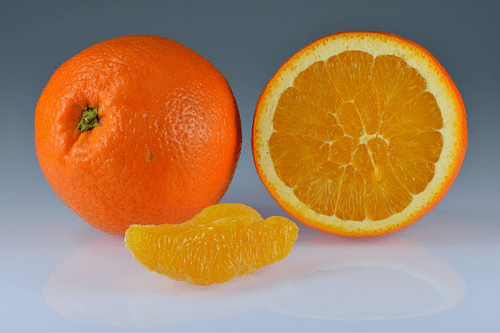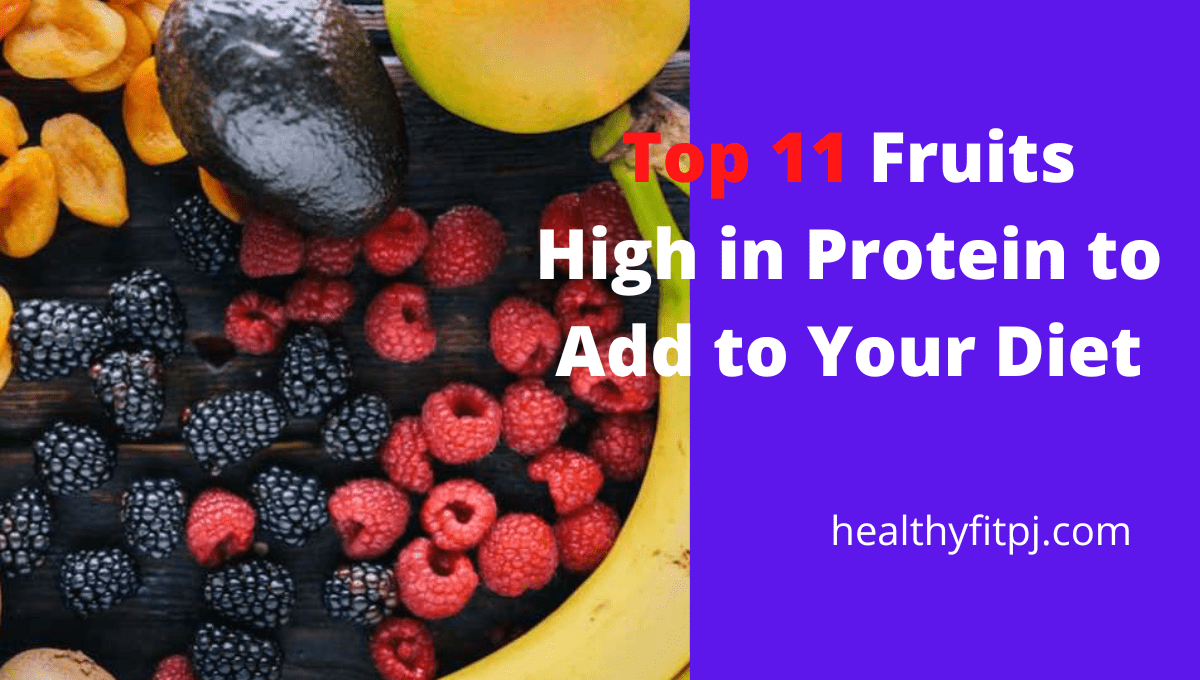You might be interested to know which fruits are high in protein if you’re aiming to meet a specific daily protein goal in order to gain muscle or reduce weight.
Although the little amounts of protein found in fruit may not have a significant impact on your overall consumption, they can nevertheless provide you an extra protein boost. There are several wonderful sources of protein.
A wonderful approach to increase your intake of vitamins, minerals, fibre, and phytonutrients is by including fruits in your diet. Fruits, however, cannot be categorised as foods that help build muscle.
It’s recommended to concentrate on incorporating high-protein foods into your meals or to splurge on the best protein powder to meet the majority of your protein needs.
Here are 11 fruits you should eat that are high in protein if you want to more easily reach your fitness objectives.
Table of Contents
11 Fruits High in Protein
When you consider sources of protein, fruit might not be the first thing that springs to mind. But every little amount counts if you’re looking for more of the substance.
A nice approach to increase the amount of this nutrient in your diet is by eating certain fruits.
1. Guava Fruit
Guava is the top fruit in terms of protein content. It is one of the fruits with the highest protein content because it has about 4.2g of protein per cup.
Tropical fruit known as guava is primarily grown in Central and South America. It is renowned for its crisp exterior and sweet flavour that tastes similar to a cross between strawberries and pears.
Guavas are a fantastic source of potassium, fibre, and vitamin C.
Guava may include antioxidants that are good for your health, such as quercetin, catechin, and isoflavonoids, according to a review article of several studies that was published in Open Access: Toxicology & Research.
It has been established that these substances possess potent anti-inflammatory and antibacterial effects.
2. Apricots

While a cup of dried apricots has about 5g of this crucial macronutrient, a cup of sliced fresh apricots only has about 2.2g.
Apricots are a great food option for anyone trying to lose weight because they are low in calories.
Vitamin A, C, E, carotenoids, potassium, and zinc are abundant in apricots. According to the Molecules journal, they also contain a sizable number of flavonoids, which are known to promote health.
The anti-cancer, antioxidant, and antiviral effects of apricots may be attributed to active substances such catechin, quercetin, and chlorogenic acids.
A quick and wholesome snack, apricots are great. To take advantage of all the advantages of this high-protein fruit, add them to a homemade trail mix or put them in a salad.
3. Jackfruit
The feel of the unripe flesh of jackfruit, a tropical fruit related to figs, is uncannily similar to pulled pork.
3 grammes of protein are present in one cup of Jackfruit.
According to the Cleveland Clinic, it also contains numerous nutrients that are good for your health, including three grammes of fibre, 110 milligrammes of potassium, which is good for your heart, as well as vitamins A and C, magnesium, calcium, iron, and riboflavin.
4. Avocado
4g protein per cup of avocado.
Even while avocado is known for being a good source of oil, it also offers a fair amount of protein. Additionally, the monounsaturated fatty acids in this fruit lower harmful cholesterol.
In order to keep you healthy all year round, avocados also provide a lot of potassium, which controls blood pressure.
Purchase additional fruit: Avocado is undoubtedly a delightful and creamy ingredient to any salad you are thinking of making.
You may blend it with honey and cacao powder for a different sweet treat, or make guacamole out of it.
5. Kiwi Fruit

2g protein per cup of kiwi fruit.
Kiwis have a good amount of protein in addition to being high in vitamins C and K. Additionally, it has vitamin E, which is well-known for its ability to repair skin.
Kiwis can be eaten straight from the tree or chopped up for a fruit salad. Want to increase your protein intake? To go with kiwis, grab some almonds or Greek yoghurt.
If you’re feeling daring, blend them into a smoothie and add more fruit or ginger to the mixture to balance the acidity.
6. Blackberries
Blackberries are among the healthiest berries available, despite the fact that not everyone may enjoy their strong acidic flavour.
Raw blackberries include less than 7g of sugar and roughly 2g of protein per cup, along with nearly 8g of fibre.
Additionally high in manganese, magnesium, vitamin C, and vitamin K are blackberries.
Blackberries are simple to incorporate into plain yoghurt or your morning muesli bowl. Additionally delicious in smoothies, salads, and desserts, these high-protein fruits.
7. Melon
1.5g protein per cup of melon.
Cantaloupe melon is not only delicious, but it also has more protein than other fruits.
It is packed with powerful antioxidant vitamins A and C, which support a healthy immune system. Additionally, its orange hue suggests that it’s a good source of beta-carotene, which is essential for the wellbeing of the skin and eyes.
Cut it up into chunky pieces and eat it that way, or combine it with honeydew and watermelon to form a melon mélange.
You could eat it with a piece of fruit-wrapped, high-quality cured ham.
8. Oranges

Around 1 g of protein can be found in one medium-sized fresh orange, and up to 2 g can be found in a cup of freshly peeled wedges.
This fruit has a lot of fibre, vitamin A, vitamin C, and calcium while having little calories.
Citrus fruits are full with potent phytonutrients, which have a number of positive health effects.
Oranges, lemons, and other citrus fruits have powerful antioxidant and anti-inflammatory capabilities, which lower your chance of acquiring cancer, heart disease, and neurological diseases, according to numerous studies.
Oranges are a terrific addition to smoothies, green salads, and chocolate-based desserts as well as a great snack on their own.
Although you might not obtain all of the protein in a nice juice made from them, you can squeeze them.
9. Peach
1g protein per cup of peach.
Peaches are a great source of beta-carotene in addition to being ripe and having a high protein content.
The fruit is a staple item on weight loss regimens since it is high in fibre.
Purchase a bag of frozen peach slices to prepare and consume because the fruit is typically at its best when frozen, keeping its sweetness and nutritional peak.
They can be thawed, added to smoothies, or used to make quick sorbet.
10. Raisins
If you enjoy dried fruit, raisins are a wonderful source of protein. Nearly 1 gramme of protein can be found in one ounce, or roughly 60 of the tiny creatures.
You can eat them as a snack with nuts, sprinkle them on your oatmeal for morning, or add them to a salad for a sweet touch.
11. Bananas
Bananas have a healthy quantity of protein; one cup of sliced bananas has about 1.6g of this macronutrient.
The fruit is an excellent source of energy for even the most strenuous workouts because it is high in fibre and complex carbs.
Additionally, bananas are a good source of potassium, vitamin C, and vitamins B6 and C.
They also include a lot of antioxidants and phytonutrients, which, according to a review article in the Food Chemistry journal, may have a very positive impact on our nervous and cardiovascular systems.
Conclusion
You can now choose from a wide variety of fruits and consume a wide range of vitamins and antioxidants.
Keep a copy of this list of fruits high in protein so you can refer to it when choosing your breakfast or snacks.
Sources:
- https://www.mdpi.com/1420-3049/25/22/5243
- https://www.researchgate.net/publication/330702066_A_short_review_on_a_Nutritional_Fruit_Guava
- https://health.clevelandclinic.org/what-is-jackfruit-and-is-it-healthy/
- https://bmcchem.biomedcentral.com/articles/10.1186/s13065-015-0145-9
- https://www.sciencedirect.com/science/article/abs/pii/S0308814616303831?via%3Dihub
